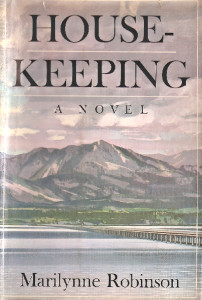“There are a thousand thousand reasons to live this life, everyone of them sufficient,” wrote Marilynne Robinson, who has been called one of America’s finest living writers, despite having only published four novels in the last 35 years.
Robinson’s novels are themselves good reasons to be alive. Using prose that is graceful and light, she delivers a vast range of emotion and philosophy about the human condition. Her characters deal with a world that is at times indifferent to their struggles and yet still sufficient to their needs.
The world of Robinson’s novels, for all its wonder and beauty, doesn’t give her characters, or us, an easy ride. “The ancients are right,” she said, “the dear old human experience is a singular, difficult, shadowed, brilliant experience that does not resolve into being comfortable in the world.” Yet it is in the very complexity of the world that we find the redemption for that tricky thing called experience.
Robinson writes with a touching consideration for these small details of existence. The main character of Gilead, a dying priest who is recounting family history for his son, says that in our everyday world there is “more beauty than our eyes can bear.” Revealing the extraordinary nature of our ordinary lives is one of the purposes of art, Robinson has said. “Cultures cherish artists because they are people who can say, Look at that. And it’s not Versailles. It’s a brick wall with a ray of sunlight falling on it.”
But this ability to see what she calls the “numinous quality” of ordinary things is not just reserved for artists. “It’s not an acquired skill,” she said. “It’s a skill that we’re born with that we lose. We learn not to do it.”
A good place to start unlearning our blindness is the fiction of Marilynne Robinson.
Marilynne Robinson must-read:
Housekeeping
(Public library adult fiction)

